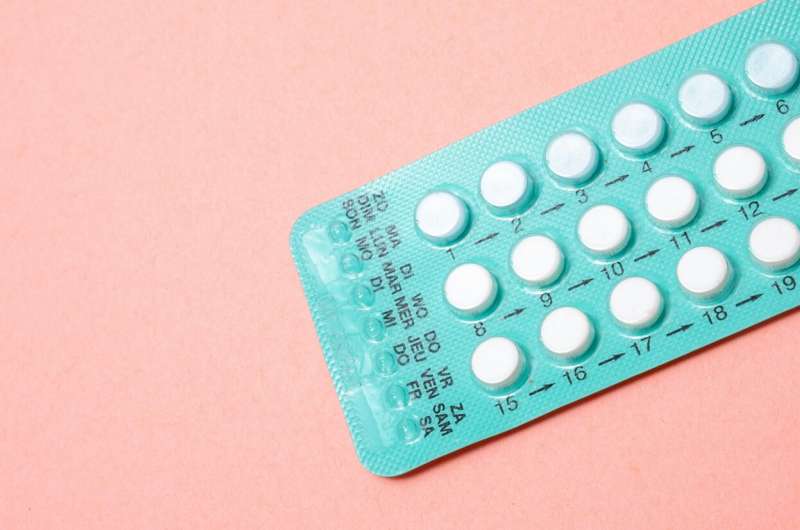Impact of Overturned Abortion Rights on Contraception Access After Three Years

Three years after the Dobbs v. Jackson decision overturned abortion rights, access to contraception is increasingly at risk due to legal, political, and healthcare system challenges across the U.S.
Since the landmark Supreme Court decision on June 24, 2022, which overturned nearly 50 years of constitutional protection for abortion rights through the Dobbs v. Jackson Women's Health Organization ruling, the landscape of reproductive health has dramatically changed in the United States. This ruling shifted the authority to regulate abortion back to individual states, leading to a swift and extensive tightening of restrictions across the country.
As a consequence, many states have enacted near-total abortion bans or limited access to abortion early in pregnancy. Currently, 12 states enforce near-total bans, and several others restrict abortion after viability. These legislative changes have not only made abortion services less accessible but have also, perhaps surprisingly, begun to threaten access to contraception.
Researchers and healthcare professionals are raising alarm about this developing crisis. With abortion becoming more restricted, the demand for effective contraception has surged, as women seek to prevent unintended pregnancies in a legal environment fraught with risk. Data indicate that in some states, the use of long-acting reversible contraceptives (LARCs), such as IUDs, as well as sterilization procedures, has increased substantially. A 2024 national survey revealed that nearly 20% of women aged 18-49 changed their contraceptive practices following the Dobbs decision, including initiating new methods or opting for sterilization. Similarly, studies from Ohio and other medical centers have documented increases in sterilization procedures and vasectomies.
However, the availability of providers capable of delivering contraception is diminishing in states with strict abortion laws. While current evidence suggests only modest reductions in OB-GYN providers, the closure of numerous clinics that provided both abortion and contraceptive services is a growing concern. As of 2024, all 57 clinics that offered abortion in the most restrictive states had shut down, likely impairing access to a broad range of reproductive health services.
The political and social climate has also fostered efforts to reframe certain contraceptives, such as emergency pills like Plan B and specific IUD types, as abortion-causing drugs. This misinformation narrows access and influences insurance coverage, with potential legal and financial barriers threatening to limit the availability of highly effective contraception methods. Moreover, legislative agendas including Project 2025 suggest future measures aimed at removing certain contraceptives from coverage under laws like the Affordable Care Act.
The repercussions extend beyond individual access, affecting medical training and the overall healthcare workforce. Declining applications to residency programs in states with restrictive laws hint at a shortage of healthcare providers committed to practicing there long-term. This could exacerbate the disparities in reproductive health services in these areas.
In summary, the overturning of Roe v. Wade has set off a ripple effect that jeopardizes not only abortion access but also the availability and perception of contraception. Ensuring continued access to effective family planning remains crucial as the nation grapples with these substantial policy shifts and their implications on women's health.
Source: https://medicalxpress.com/news/2025-06-years-abortion-rights-overturned-contraception.html
Stay Updated with Mia's Feed
Get the latest health & wellness insights delivered straight to your inbox.
Related Articles
Daily Consumption of Artificially Sweetened Soft Drinks May Elevate Diabetes Risk by Over 30%
A groundbreaking Australian study links daily consumption of artificially sweetened soft drinks to over a 30% increased risk of developing type 2 diabetes, challenging perceptions of their safety.
Advanced PET Imaging Technique Enables Accurate Mapping of Nasopharyngeal Cancer Biomarker
A novel PET imaging technique using CD70-targeted tracers offers highly accurate detection of nasopharyngeal cancer and its metastases, enabling personalized and early treatment approaches.
Exploring the Role of Artificial Intelligence in Modern Rheumatology
Discover how artificial intelligence is revolutionizing rheumatology through improved diagnosis, disease monitoring, and patient communication with the latest research from EULAR 2025.
COVID-19 Surge in California Driven by New 'Stratus' Variant Tied to Omicron
COVID-19 cases are rising quickly in California, driven by the new 'stratus' omicron subvariant, with health officials warning about ongoing community transmission and delayed vaccine rollout. Learn the latest updates from experts.



